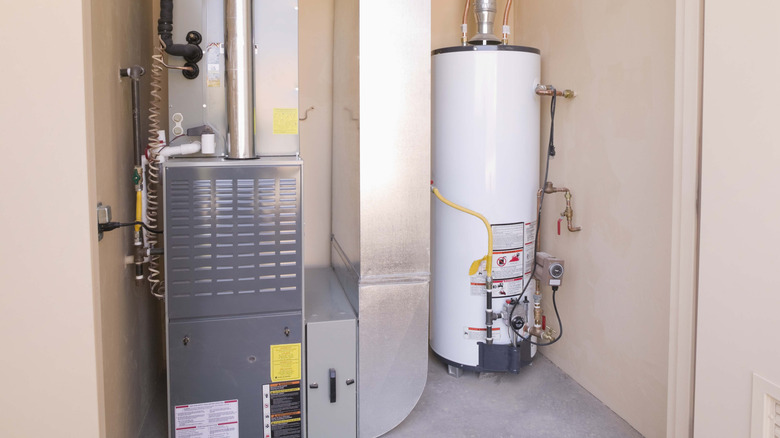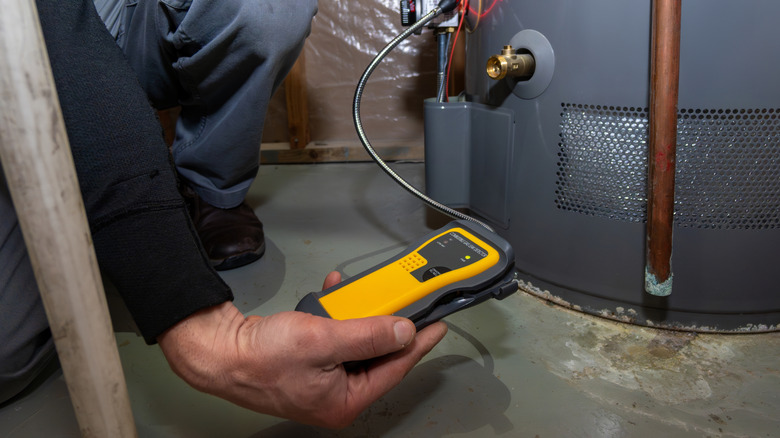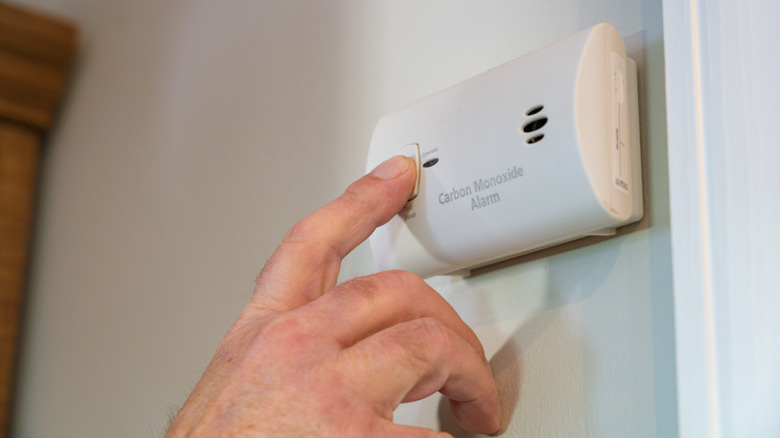The Smelly Sign That It's Time To Replace Your Furnace
Most people in the United States use furnaces for heating and hot water. Since furnaces are usually out of sight in your basement, crawlspace, attic, or similar spaces, they can be easy to forget about. But furnaces don't last forever. Your furnace may send you signs that it needs to be replaced through smells like burning plastic, rotten eggs, and chemical odors.
Before diving into what specific smells mean, let's establish a baseline for furnace odors. If you haven't used it in a while, your furnace may smell a bit damp or musty when it's first turned on. That's normal. It's due to dust and debris caught in the air ducts now being burned up. You can avoid it by having your furnace cleaned before you turn it on. But ultimately, don't worry unless the smell continues for more than several days. In this case, you may need to replace your air filter. If the problem continues after changing out filters, you should call in professionals.
There are furnace smells that point to serious problems, though. One of the most important to be aware of is the smell of burning plastic. This odor can occur due to relatively harmless things like plastic objects caught in your heating ducts. However, it can also signal electrical issues. That's because your furnace's internal system includes wires wrapped in a plastic casing that can become damaged due to electrical problems. If you notice this smell, you need to turn off your furnace immediately and contact a professional to determine if it can be fixed or needs to be replaced.
Smelling rotten eggs could indicate a gas leak
Randomly smelling rotten eggs in your home is never a good sign. Unless you actually need to clean out your fridge, this generally points to an issue with your gas. In the United States, gas is one of the most common fuels for furnaces. Other signs of a gas leak include a hissing sound coming from your furnace, and physical symptoms like headaches, dizziness, fatigue, and respiratory irritation.
Your furnace isn't the only thing in your home that runs on gas, though. If you're unsure of where the smell is coming from, you must know how to determine the location of your home's gas leak and what to do about it. Like electrical issues, this is nothing to play around with. You should not only turn off your furnace but your actual gas supply, if you know where it is. Afterwards, leave your house while it ventilates and contact your gas company for further assistance. However, rotting eggs doesn't only point to gas leaks. Sometimes, you may catch this unpleasant scent due to sewer issues because sewer traps are typically near the furnace. If you continue to smell rotting eggs after addressing any potential gas leaks then that may be the next source to look into.
A chemical smell could mean a carbon monoxide leak
Lastly, you may notice that your furnace smells like chemicals, such as formaldehyde. If that happens, there's likely an issue with the heat exchanger component. Problems with this pose a serious concern as it leads to a higher fire risk and carbon monoxide leaks. Any time you notice a chemical smell, you should call in professionals immediately. Unfortunately, you may not always detect a smell if this part fails, but odorless carbon monoxide can still leak out. To avoid any issues, it's recommended to have a carbon monoxide detector at least 15 feet away from any furnace.
Together, all of these smells are signs that your furnace may need to be replaced or at least have serious repairs. However, you can limit surprise issues by getting your furnace inspected at the right time of the year. Generally, aim for an inspection before you have to turn your furnace on for cold weather. This way, you have time to adequately address any issues that might arise. During an inspection, you can also take the time to test carbon monoxide detectors to ensure that they're in working order, too.


